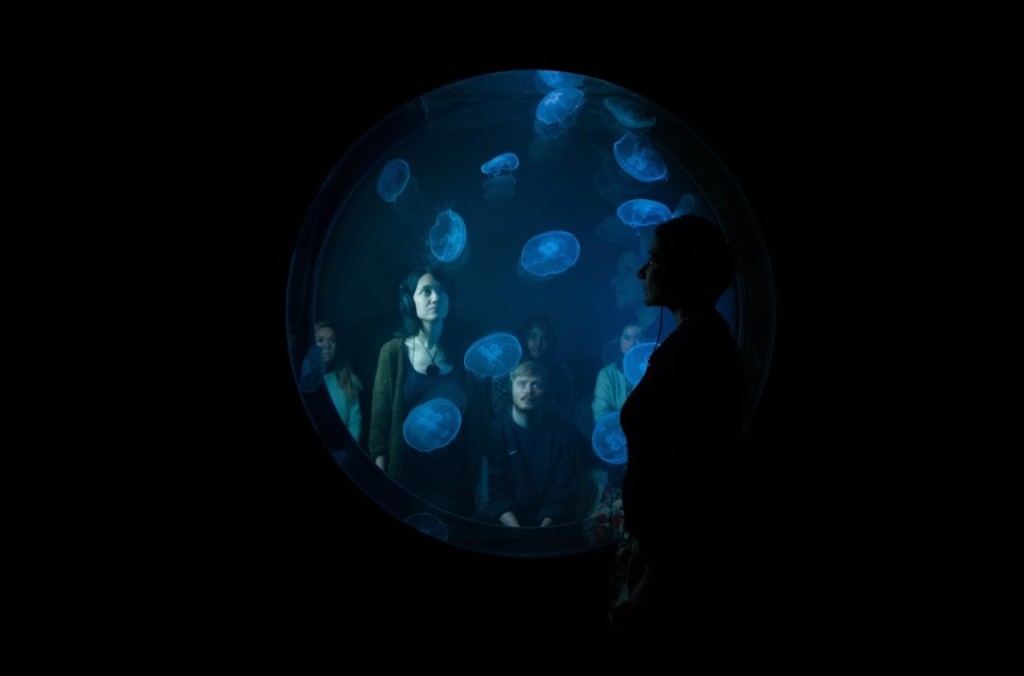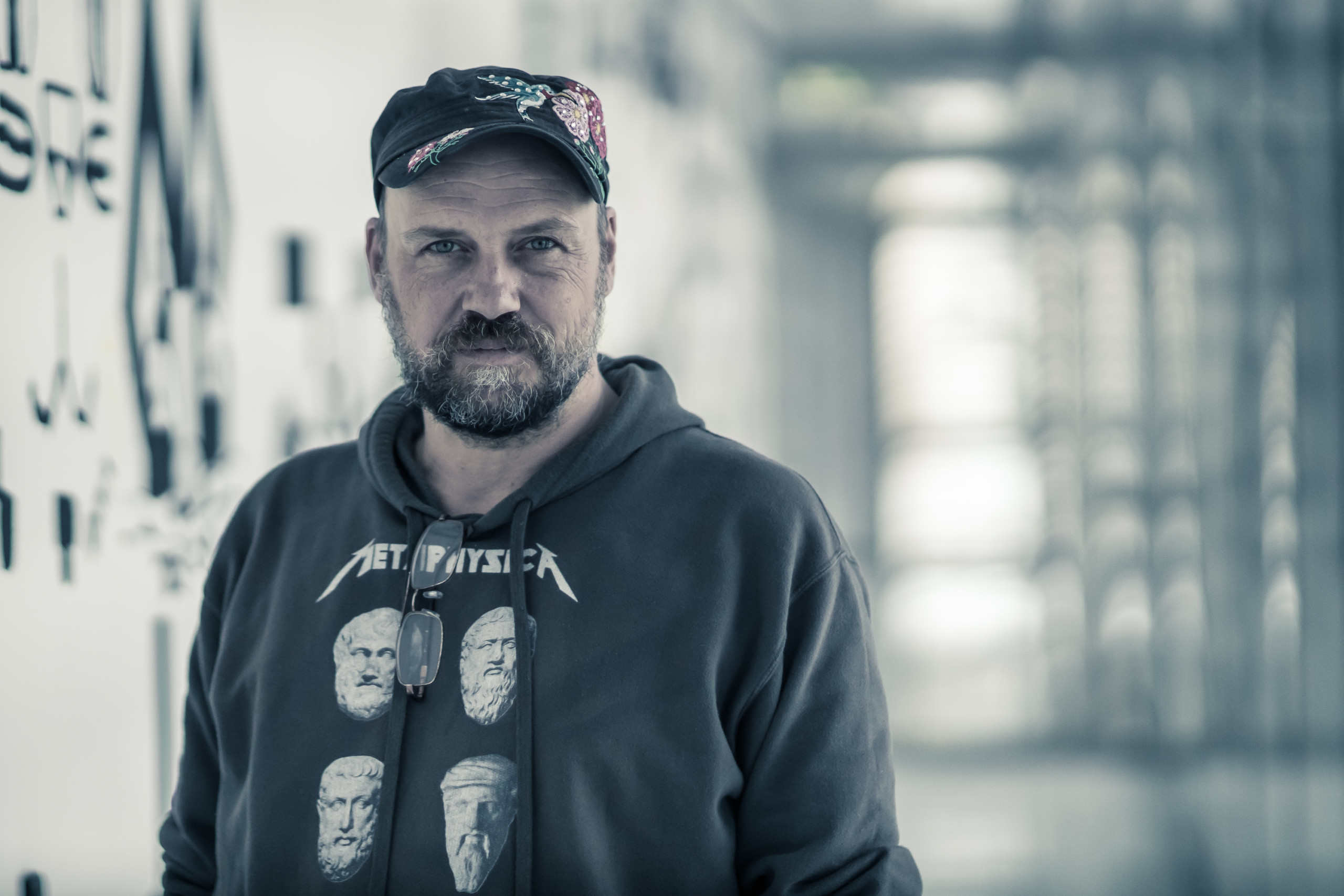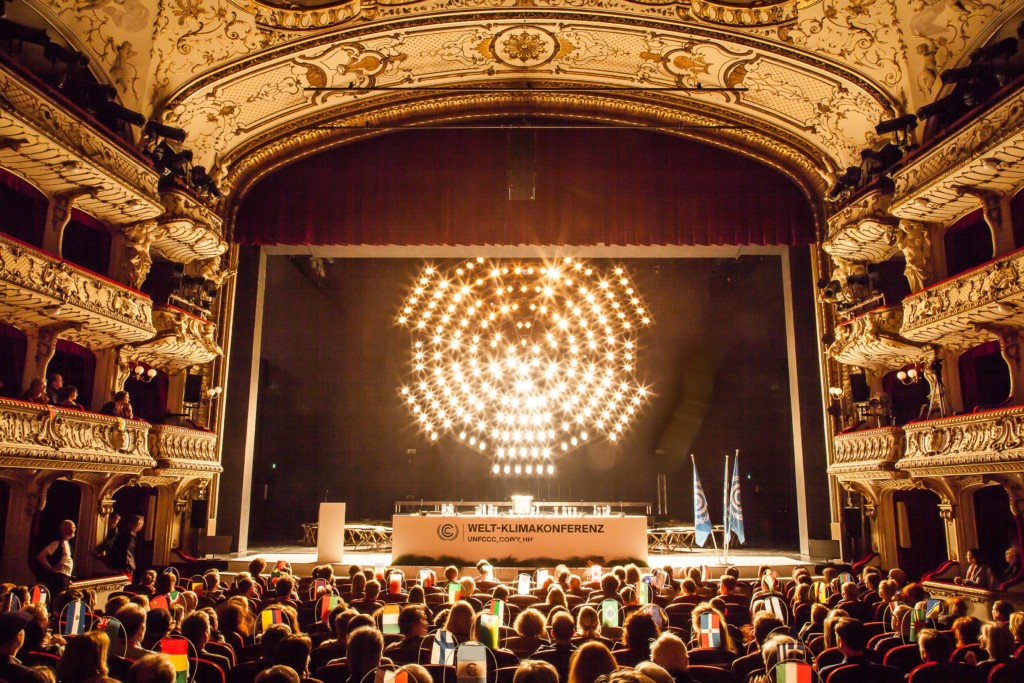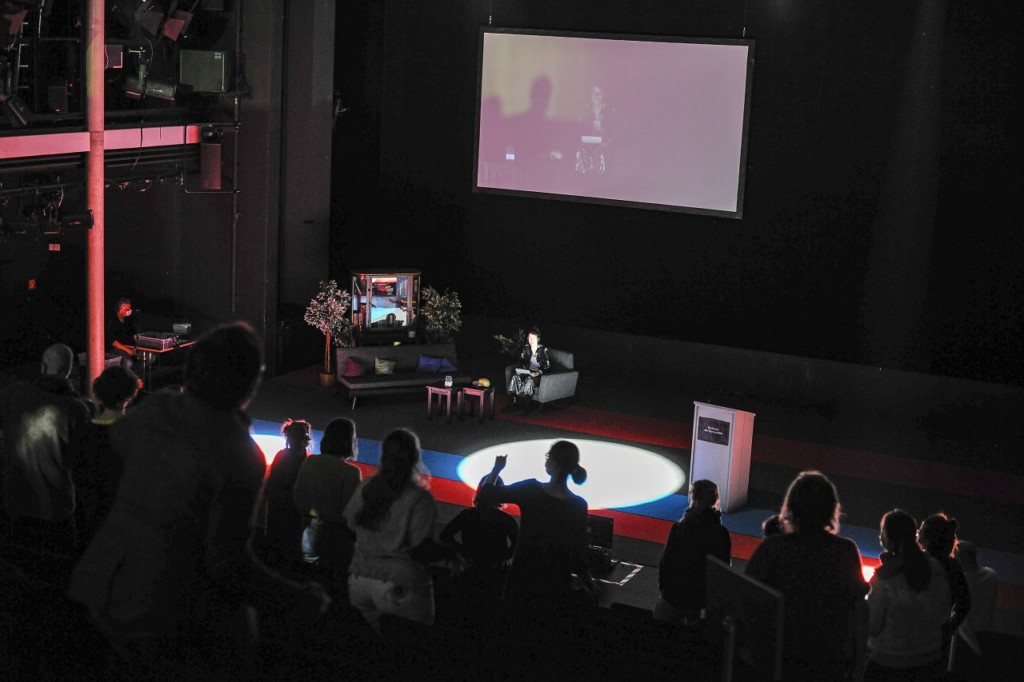Daniel Wetzel is cofounder of the theatre-label Rimini Protokoll, together with Helgard Haug and Stefan Kaegi. Based in Berlin, they have created over 300 works over two decades, in public spaces, theatres, art centres and museums, including CCCB, Garage Museum, MAAT, Royal Academy of Arts and many more.
Stefano Vendramin: In your works, you interrogate different societal issues and encourage the public to think more deeply about them. Climate change is a recurring theme, from the 2014 piece World Climate Conference, to win > < win in 2017, and Conference of the Absent in 2021. The first one, in 2014, ahead of COP21, created an experience that put us in the shoes of the COP Climate Conference negotiators. Can you tell us how?
Daniel Wetzel: Unlike the real COP, World Climate Conference lasted for five hours, not several days, and was set in the largest theatre in Germany, the Hamburger Schauspielhaus.
When you entered, you were told “Welcome, you are part of the delegation of one of the 196 countries that participate in COP”. Then, the audience sat down in their respective seats, each adorned with their assigned national flag. The hosts were all experts that had really participated at previous COP conferences: scientists with climate change models, experienced lobbyists, representatives of highly-affected areas in Africa, and so on. Finally, the audience actually did a climate conference.
The important thing was that you would get your delegation by chance, so the probability was rather high that you would have a booklet of a country that you don’t know much about, say Paraguay, and you had to learn the position of this country. Is it warm in Paraguay? How many trees are left? Does it pay into the climate funds or does it apply? During these five hours, you would make your own path through different work groups and briefings to learn more about your specific questions, and to partner up with other delegations, like the Southern countries meeting the Northern countries to get them to pay into the climate funds they agreed to.
The piece dealt directly with the question of responsibility because, at the end, our delegations had to decide and announce how much they were each going to pay. Afterwards, we all saw to what extent we would have stayed under the 1.5 or 2 degree limit with the decisions our audience made.
The funny thing is, when you do a piece that’s five hours long, you know that people will say “That was nice, but it was too long”. Instead, people actually said, “That was nice, but it was really too short.”
Following the Paris Agreement at COP21 in 2015, some of the experts we worked with said that the show was not necessary anymore. They said, “Now we have Paris, everything is clear. Why should we do this speech in the morning? It’s done”. And we replied, “Are you really sure? Do you know how politics work?” People were very optimistic at that moment, and we stopped doing it. But here we are today.
In 2017, Rimini Protokoll also created win > < win, an installation for the group show on climate change “After the End of the World” at CCCB in Barcelona, which placed spectators this time either side of an aquarium of jellyfish. For this, you worked with Australian marine biologist and jellyfish expert Lisa-Ann Gershwin, who famously stated “We are in this crazy, unforeseen and incomprehensible situation where we are competing against jellyfish. And they are winning.” Then, in 2021 – clearly the optimism around the COP21 didn’t last very long – you had a new piece relating to climate change, Conference of the absent, which dealt with the issue of flying.
Conference of the absence was an idea for an international conference to which flying was not permitted. Therefore, the invited speakers do not appear physically at the conference, but are represented by the local audience, who come on stage and spontaneously represent them. The point, however, was not to tell people “You cannot fly anymore”. Instead, it was to ask “To what extent is it necessary that people fly? And what if tomorrow, it would not be possible?”
The principle was that nothing could travel, except for data via the internet. In the end, we still had to send two technicians to give a full briefing, but we managed to convince many of the hosting theatres that they could find the stuff that was needed on stage, rather than buy it. Occasionally, the theatres would tell us “It’s not sustainable if we borrow a carpet because we need to borrow a truck, we need to pay a person to pick it up, we have to clean the carpet, etc.” It’s a debate that we were open to, and which created a process of reflection, but of course we respected the theatre’s final decision because we cannot influence their budgets, personnel, and so on.
On the other hand, I think it was helpful to encourage people to realise “No you don’t have to buy plants, you can actually just take those from your offices and put them on stage, that’s fine.” The attitude of ‘whatever works’ is something that we all have to learn. In art, you can start looking more from the vision of what is there, instead of the vision of what you want. That’s an easy shift.
What are you working on at the moment?
Rimini Protokoll have many projects ongoing at any time, but personally, I’m currently working on La Danse d’Amazon, a piece about Amazon.com centred around two circus artists in a giant circus tent. At this moment, At the moment the artists are working for Amazon somewhere in Europe in order to generate their own physical, social and mental experience of the subject. It will be shown in Berlin in November, but we’re also looking for venues in other cities.
The initial idea came to my collaborator Jean Peters during Covid because whilst at the time many performing artists couldn’t work, the people at Amazon were working more than ever. As with all our projects, both myself and the performers spent a lot of time researching and talking to people that work or have worked for Amazon. We even joined seminars where union workers get briefed how to talk with their bosses at the Amazon fulfilment centres about improving their conditions. In the end, we will create a physical experience of what it’s like to work in this business, a sort of living exhibition.
The reason for working with circus artists is that it’s an artistic form that reflects well our current society, built on performance, of which Amazon is both a mirror and a motor. The circus is an artistic celebration of risk, control and customer satisfaction. And that’s what capitalism is about.
As an audience, you have to look in the mirror. We all start by blaming or suspecting that an entity like Amazon does so much wrong. But the closer you look, the more you untangle that you are yourself responsible. Even if you don’t order from Amazon, you’re contributing to the same system.
As soon as you cannot blame anyone else anymore, that’s when something really changes. Be it climate change measures or shifting gender norms, all of these issues are about a big part of the society feeling threatened about all the rapid changes that are happening, and not seeing that many of these changes are for the better. The real problem is a lack of trust and communication. The fear of all the changes that are happening in society, that are actually not even enough, can only be healed by encouraging careful, empathic communication with those who feel left behind.

Win >< Win © David Parry
Do you have a dream project?
Yes. It has to do with death, climate change and a great actress like Isabelle Huppert.
The way we deal with climate change can be shown to have a lot in common with how we deal with death. Elisabeth Kubler Ross, a psychologist, analysed in the 50s how people react to knowledge that they are dying and described its different phases: denial, anger, bargaining, depression, acceptance and several other intermediate states.
We could see these as phases that societies also go through. However, within each society are many different people, all at different stages. Some have already surrendered, some are in denial, whilst others are rebelling by buying an even faster car. But in the end, the inevitable fact is that we’re all going to die, be it from climate change or something else.
So for this dream project, I imagine big posters around the city with a portrait of this great actress and the title “Come Die with Me”. On stage, she will look back on all the deaths she has performed and recount how it feels and how to perform it well. Then, without going into too much detail, she will invite people to pay with their ticket purchase to die alongside her. Amongst other things, it’s about our relationship to death, money and collectivity. I hope this ritual will happen 100 times in all the cities of the world, each time with a different famous actor, Meryl Streep in New York, a famous Bollywood actor in Bangalore, and so on. That’s the dream, and I hope it happens.
Conversation with Stefano Vendramin
July 2023
Learn more about Rimini Protokoll
Cover : Daniel Wetzel © Stavros-Habakis
Impact Art News, June-July 2023 #44
Subscribe to Impact Art News (free)



